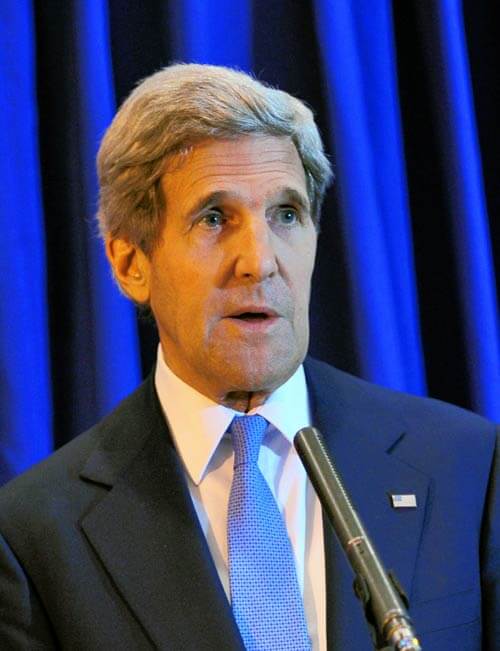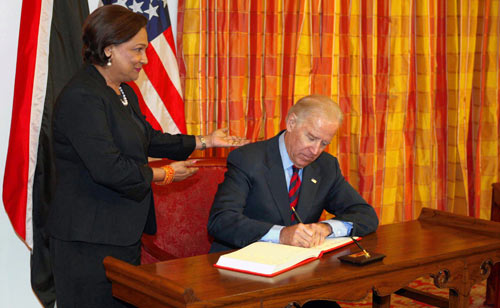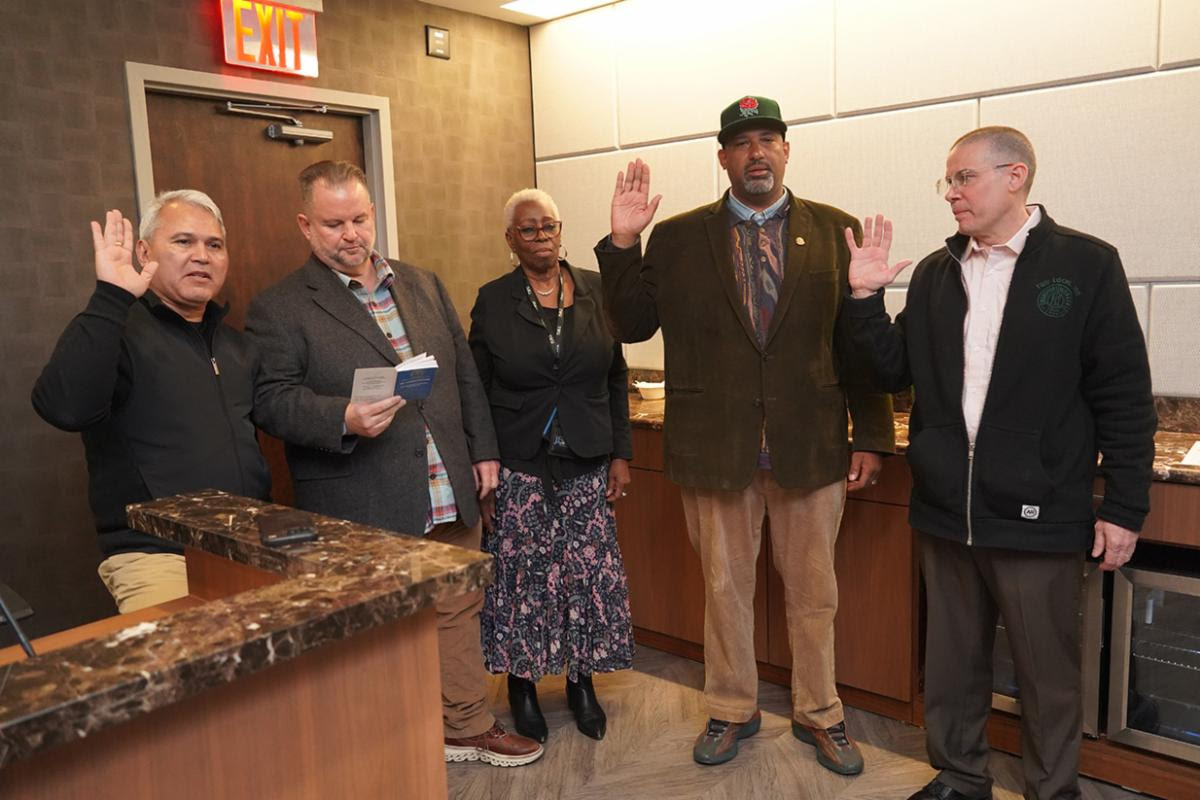HAVANA (AP) – Cuba and the United States may be longtime enemies with a bucket overflowing with grievances, but the fast return of a Florida couple who fled U.S. authorities with their two kidnapped children in tow shows the Cold War enemies are capable of remarkable cooperation on many issues.
Indeed, diplomats and observers on both sides of the Florida Straits say American and Cuban law enforcement officers, scientists, disaster relief workers, Coast Guard officials and other experts work together on a daily basis, and invariably express professional admiration for each other.
“I don’t think the story has been told, but there is a real warmth in just the sort of day-to-day relations between U.S. and Cuban government officials,” said Dan Whittle, who frequently brings scientific groups to the island in his role as Cuba program director for the Environmental Defense Fund.
“Nearly every time I talk to American officials they say they were impressed by their Cuban counterparts. There really is a high level of mutual respect.”
Almost none of these technical-level interactions make the headlines, but examples are endless.
Just last week, Cuba’s top environmental official Ulises Fernandez and several island oil experts attended a conference in New York of the International Association of Drilling Contractors after the State Department expedited their visas.
And in March, Cuba’s leading weatherman, Jose Rubiera, traveled to North Carolina on a fast-track visa to give a talk about hurricane evacuation procedures. Last year’s Hurricane Sandy, which slammed Cuba’s eastern city of Santiago before devastating the northeastern United States, was a cruel reminder that nature cares not about man’s political squabbles.
The American government maintains a Coast Guard representative in Cuba, and the two countries work together to interdict suspicious boats. A U.S. diplomat involved in the process told The Associated Press that security officials on both sides are on a first-name basis, and that the Cubans happily accept FBI and Coast Guard baseball caps as gifts.
He and other diplomats spoke on condition of anonymity because they were not authorized to discuss bilateral issues publicly, but all said they had noticed a thaw in daily interactions that belies the subzero temperatures that characterize official relations.
The two countries have been at odds since shortly after Fidel Castro’s bearded rebels marched into Havana in January 1959 and began to set up a Communist state. Washington has maintained an economic embargo on the island for 51 years.
More recently, the countries have been locked in confrontation over the fate of jailed American contractor Alan Gross, who the Cubans want to exchange for five of their intelligence agents sentenced to long jail terms in the U.S.
Angry barbs between Havana and Washington on issues such as democracy, human rights and sovereignty are still the norm, and even delivering each other’s mail is a challenge. The countries, separated by just 90 miles of warm Caribbean seas, long-ago ended direct service.
“There are so many weird and abnormal aspects of the relationship between Cuba and the United States, things that don’t occur between other countries, that when something normal happens it is a surprise,” said Carlos Alzugaray, a former Cuban diplomat.
He said Cuba has in recent years taken a pragmatic approach, more often than not cooperating on drug enforcement and judicial issues, something he hoped would one day lead to better ties.
“It is important to highlight … that in judicial matters there is a willingness to cooperate and that could open a path to other types of cooperation,” he said, citing the return of Joshua Michael Hakken and his wife, Sharyn, as a case in point.
Cuba is believed to harbor dozens of American fugitives from the 1960s and 1970s, many of them veterans of domestic militant groups like the Black Panthers.
But Havana has clearly shown in recent years that it has no interest in becoming a refuge for common criminals – deporting suspected murderers, child molesters and kidnappers who were foolish enough to think they would be beyond U.S. law enforcement’s reach.
The Hakkens are accused of kidnapping their young sons from the custody of Sharyn’s parents and sailing with them and his wife to Havana. Cuba promptly informed the State Department of the couple’s weekend arrival on the island, and worked with U.S. officials to send the family home swiftly.
Both sides praised the joint effort.
“We would like to express our appreciation to the Cuban authorities for their extensive cooperation to resolve this dangerous situation quickly,” the U.S. Interests Section in Havana, which Washington maintains instead of an embassy, wrote in a Wednesday statement.
In Washington, State Department spokesman Patrick Ventrell termed cooperation as “extensive,” but said the case should not be taken as a sign of political opening.
“I’m not sure I would read into it one way or another,” he said. “This was cooperation on a specific law enforcement matter.”
Diplomats agree, and point to less dramatic examples of cooperation as more germane.
U.S. and Cuban diplomats must get authorization to travel outside each other’s capitals, something that was once used as a cudgel by both sides to get revenge for political slights. Lately, they say, permission has been granted on an almost routine basis.
American diplomats have travelled increasingly throughout the island, for work and play. For its part, Cuba’s top envoy in Washington, Jose Cabanas, recently visited Georgia, Houston and New Orleans, among other places.
At times, diplomatic cooperation has reached levels that would be surprising even between friendly nations.
During last month’s World Baseball Classic, a U.S. Interests Section official personally carried emergency visas for several Cuban coaches and support staff on a trip to Guam and handed them off to a Tokyo-based colleague, a U.S. official told AP. At the time, Cuba was playing its early round games in Japan and would have needed the visas if the team had advanced to the semifinals in San Francisco.
Several weeks ago, U.S. Consul General Timothy Roche spoke with Cuba’s Communist Party daily Granma about American immigration policy, believed to be the first time in 10 years that state-media carried such an interview with U.S. diplomatic staff.
Even on thornier issues like the U.S. naval base at Guantanamo Bay – which Cuba has denounced as a torture camp – the two militaries hold occasional joint exercises to prepare for brush fires and other emergencies.
Jorge Pinon, a leading expert on Cuba’s oil industry and research fellow at the University of Texas, said American and Cuban energy and environmental officials have for years worked past the political morass and established strong working bonds.
When politics allows, he said, those ties could be the basis for something bigger.
“Just like ping pong opened China and the U.S. relationship,” Pinon said. “The environment, working on drugs and other subjects of common interest could certainly be those bridges which will make us trust each other and be able to have a civil conversation on other topics.”


























